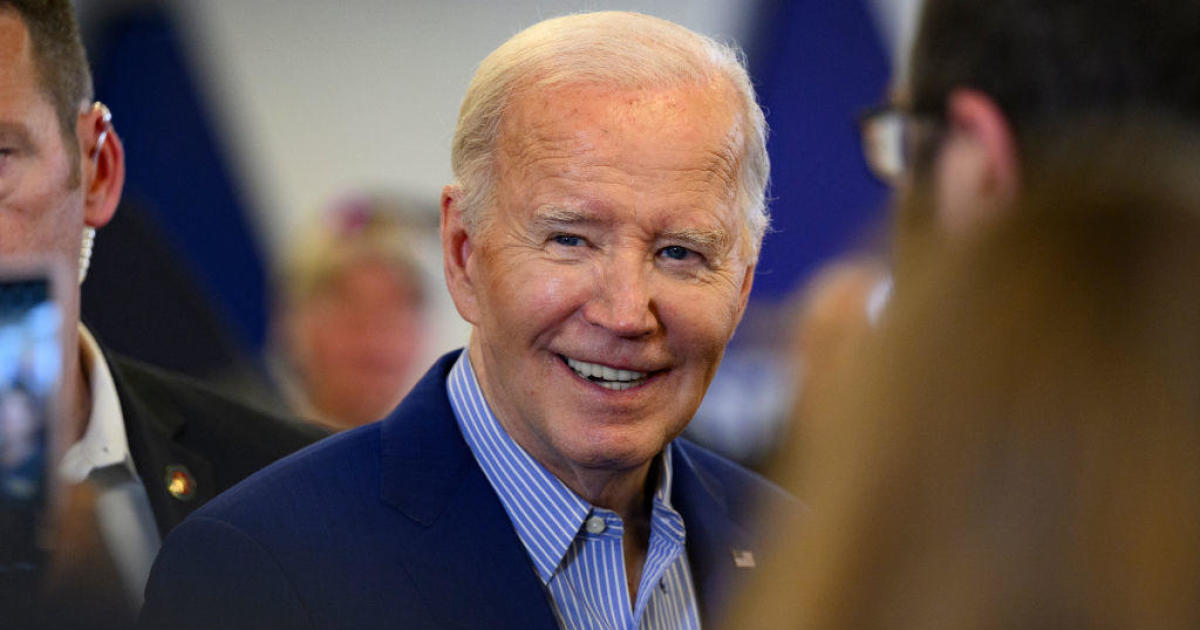'Sends A Bad Message': Republican Stalwart Sen. Pat Toomey Now On Outs With GOP Over Donald Trump
HARRISBURG, Pa. (CBS/AP) — Before he became the object of fury of Republicans for voting to convict Donald Trump during the former president's second impeachment trial, U.S. Sen. Pat Toomey of Pennsylvania was once the insurgent from the right. It is now Toomey facing angry rank-and-file state Republican Party committee members and the potential of a censure vote, a symbolic gesture that may have no real effect on the senator since he isn't seeking reelection next year.
Toomey, who once endorsed challenges to Republican officeholders who weren't seen as conservative enough, is now urging Republicans to be tolerant of a difference of opinion over whether Trump and his long campaign of falsehoods to discredit the election result is to blame for the Jan. 6 attack on the U.S. Capitol.
"I understand that most Republicans probably disagree with the conclusion that I came to," Toomey said during a Thursday radio appearance on WPHT-AM in Philadelphia. "I don't think it's a good idea for the party to be deciding that they're going to censure a particular elected Republican over a particular vote, and I think it sends a bad message to the many Republicans, even if they're in the minority, the many Republicans who do agree with what I've done here."
Toomey last Saturday became one of seven Republicans who voted to convict Trump of "incitement of insurrection," even though the vote to convict ultimately fell 10 votes short of the two-thirds majority, or 67, necessary in the U.S. Senate.
"As a result of President Trump's actions, for the first time in American history, the transfer of presidential power was not peaceful. A lawless attempt to retain power by a president was one of the founders' greatest fears motivating the inclusion of the impeachment authorities in the U.S. Constitution," Toomey said in a statement on why he vote to convict. "I was one of the 74 million Americans who voted for President Trump, in part because of the many accomplishments of his administration. Unfortunately, his behavior after the election betrayed the confidence millions of us placed in him. His betrayal of the Constitution and his oath of office required conviction."
The state GOP chair, Lawrence Tabas, promptly emailed state party committee members to tell them he was planning a meeting to discuss the Senate's action.
That meeting — if it happens — is expected to involve a censure resolution, as a wave of county parties have already voted to censure Toomey.
Some even voted to censure Toomey before he cast his impeachment vote, seeing disloyalty in his assessment that Trump had committed "impeachable offenses" on Jan. 6 and his vote to endorse the constitutionality of a post-presidency impeachment trial.
Tabas and the party brass have kept silent this week, as Toomey supporters have begun to push back.
A state committee member from Erie County, Jezree Friend, emailed members to try to talk them out of holding a censure vote.
The party should not require a "Trump litmus test" to show loyalty, he said, calling it divisive, damaging to a necessary "big tent" culture and a hallmark of "cancel culture."
Sam DeMarco, the chair of the Allegheny County Republican Party, said he sees the "bloodthirst" to punish Toomey as counterproductive if the party is to attract new members and concentrate on winning races in the future.
For his part, Toomey said on KDKA-AM radio on Thursday that the party can't look the other way when a president "tries terrible and illegal and unconstitutional means of staying in power."
"That's not acceptable, that's not conservative, that's not Republican," he told the Pittsburgh station.
In 2004, Toomey was the candidate of disaffected conservatives, coming within 17,000 votes of ousting a moderate stalwart of the Senate and of Republican politics in Pennsylvania, Arlen Specter.
Toomey went on to head the Club for Growth, the take-no-prisoners free-market advocacy group where he authored the editorial "In Defense of RINO Hunting," his argument for primary challenges to Republicans who "strayed from conservative principles."
By 2010, Specter had switched parties, and Toomey ran again, this time successfully after having unified the party's conservatives and business class who liked his investment banker background and Ivy League pedigree.
Toomey — whose surprise October announcement he wouldn't run again was for "personal, not political reasons" — was a favorite of some of the party's biggest donors. He is fiercely anti-tax and anti-regulation, and a stalwart proponent of free markets and smaller government with a fiscal philosophy to the right of many Republicans in Congress.
The 59-year-old is even-keeled, squeaky clean and a precise public speaker. He is not a back-slapping politician and some party members quietly gripe that he doesn't get out around the state nearly enough.
He helped author Trump's tax-cutting bill and backed Trump's Supreme Court picks. He has opposed some of Trump's major spending bills and was the only Senate Republican to vote against Trump's rewrite of the North American Free Trade Agreement.
But it is his objections to Trump's conduct that sticks in the craw of Trump's loyalists, going back to the 2016 campaign, when Toomey was on the ballot with Trump. He refused to say whether he would vote for Trump until he voted an hour before polls closed, ultimately for Trump. He never campaigned with Trump in 2016 and barely appeared on the campaign trail with him in 2020.
On Thursday, WPHT-AM radio host Dom Giordano suggested to Toomey that he voted to impeach Trump because "you've had antagonisms toward the president's style" since 2016 and not because of the "fact pattern."
"Well, the fact pattern," Toomey responded, "I think is pretty damning."
(© Copyright 2021 CBS Broadcasting Inc. All Rights Reserved. The Associated Press contributed to this report.)



